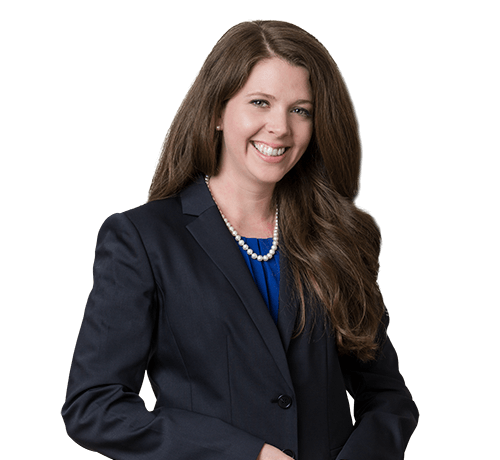Negligent Supervision
- Do Partners Have a Duty to Supervise their Fellow Partners?
We have recently seen an uptick in negligent supervision claims against law firms. To our surprise, these claims arise from the firms’ alleged failures to supervise their partners rather than their associates or non-legal staff. Which begs the question — do partners have a duty to supervise their fellow partners?
In the United States, the legal profession is governed by state ethics rules. Although ethics rules do not themselves give rise to private causes of action, some courts have used them to establish the standard of care in actions against lawyers and law firms. Most states have adopted some version of the Model Rules of Professional Conduct, as promulgated by the American Bar Association (ABA) in 1983, and in particular, Model Rule 5.1, which sets forth the responsibilities of partners and other supervisory lawyers. Model Rule 5.1(a) imposes on partners a duty to “make reasonable efforts to ensure that the firm has in effect measures giving reasonable assurance that all lawyers in the firm conform to the Rules of Professional Conduct.” According to the ABA, such “reasonable efforts” include establishing “policies and procedures designed to detect and resolve conflicts of interest, identify dates by which actions must be taken in pending matters, account for client funds and property and ensure that inexperienced lawyers are properly supervised.”
Model Rule 5.1(c) further provides that a partner is responsible for another lawyer’s violation of the Rules of Professional Conduct if the partner “orders or, with knowledge of the specific conduct, ratifies the conduct involved,” or the partner “knows of the conduct at a time when its consequences can be avoided or mitigated but fails to take reasonable remedial action.” As Model Rule 5.1(c) hinges on a partner’s knowledge of unethical conduct, it is worth noting that courts have held that such knowledge may be inferred from the circumstances. For example, in In re Bailey, the Supreme Court of Delaware affirmed sanctions against a managing partner who failed to prevent a bookkeeper from improperly transferring funds from the firm’s escrow account to the firm’s operating account. In doing so, the Court found that the managing partner knew, or should have known, that the firm’s dire financial situation would lead to the invasion of its escrow account.
While the requirements for negligent supervision claims vary slightly from state to state, plaintiffs generally must show that: (1) the law firm knew or should have known that the lawyer’s conduct would subject clients or third parties to an unreasonable risk of harm; (2) harm to clients or third parties was reasonably foreseeable; and (3) the lawyer’s conduct was the proximate cause of the injury. Thus, like Model Rule 5.1(c), negligent supervision claims hinge on the law firm’s knowledge of the lawyer’s misconduct.
Relatively few courts have opined on negligent supervision claims arising out of partner misconduct. One of the most recent cases, Wiatt v. Winston & Strawn, LLP, involved Jonathan Bristol, a former capital partner of Winston & Strawn, LLP (“Winston”). Bristol is currently serving time for his part in a Ponzi scheme perpetrated by former money manager, Kenneth I. Starr. Two of the victims of that Ponzi scheme, James and Elizabeth Wiatt, who were also clients of Winston, sued the firm for negligent supervision in December 2010. In their complaint, the Wiatts alleged that Bristol used Winston’s escrow account to launder stolen money, that Winston had a duty to supervise and control its attorneys and that Winston had negligently and carelessly failed to maintain such control. On Winston’s motion to dismiss, the U.S. District Court for the District of New Jersey found that the Wiatts failed to allege “any plausible basis on which the Court can infer that Winston knew or had reason to know of Bristol’s ‘unfitness, incompetence or dangerous attributes’ and ‘could reasonably have foreseen that such qualities created a risk of harm to other persons.’” The District Court accordingly dismissed their negligent supervision claim without prejudice.
Only one court has questioned whether negligent supervision claims against partners are proper. In Mirabilis Ventures, Inc. v. Berman, partner Richard Berman and associate Elena Wildermuth provided legal advice to Mirabilis Ventures in connection with a joint venture that eventually left it financially destitute. The plaintiff sued Berman’s and Wildermuth’s law firm, Berman, Kean & Riguera, P.A. (“BKS”), for negligent supervision. In dismissing the plaintiff’s negligent supervision claim against BKS, the U.S. District Court for the Middle District of Florida, Orlando Division, noted that “it is not clear that the relationship between a professional association and a partner gives rise to the same duty to supervise as a traditional employer/employee relationship.” The District Court further noted that “[e]ven if a professional association does have such a duty, the Court has not uncovered any authority for the proposition that a partner’s knowledge of his own misbehavior is imputed to the professional association, so as to give rise to the obligation to investigate, discharge or reassign.”
Together, Wiatt and Mirabilis Ventures demonstrate that negligent supervision claims arising from partner misconduct are both potentially viable and uncertain. On the one hand, Model Rule 5.1 suggests that partners have an ethical duty to reasonably ensure that none of the lawyers in their firm — including their fellow partners — violate the Rules of Professional Conduct. On the other hand, it is not yet clear where civil liability begins and ends.
(1)Douglas R. Richmond wrote about this very topic extensively in his article, Law Firm Partners as Their Brothers’ Keepers, which was first published by the Kentucky Law Journal in 2007-2008. See Richmond, Douglas R., Law Firm Partners as Their Brothers’ Keepers, 96 Ky. L.J. 231 (2007-2008).
(2)See, e.g., Heller v. Goldberg, Scudieri & Lindenberg, P.C., 2011 N.Y. Misc. LEXIS 5358 (Sup. Ct. N.Y. 2011); Universal Mfg. Co. v. Gardner, Carton & Douglas, 207 F. Supp. 2d 830 (N.D. Ill. 2002). But see Akins v. Edmondson, 207 S.W.3d 300 (Tenn. Ct. App. 2006) (finding that ethics rules do not establish the standard of care).
(3)In re Bailey, 821 A.2d 851, 863-865 (Del. 2003).
(4)See, e.g., Madden v. Aldrich, 346 Ark. 405, 415 (2001).
(5)Wiatt v. Winston & Strawn, LLP, 2011 U.S. Dist. LEXIS 68827 (D. N.J. 2011).
(6)Id. at * 31, quoting Di Cosala v. Kay, 91 N.J. 159, 173 (1982).
(7)Mirabilis Ventures, Inc. v. Berman, 2010 U.S. Dist. LEXIS 6502 (M.D. Fl. 2010).


